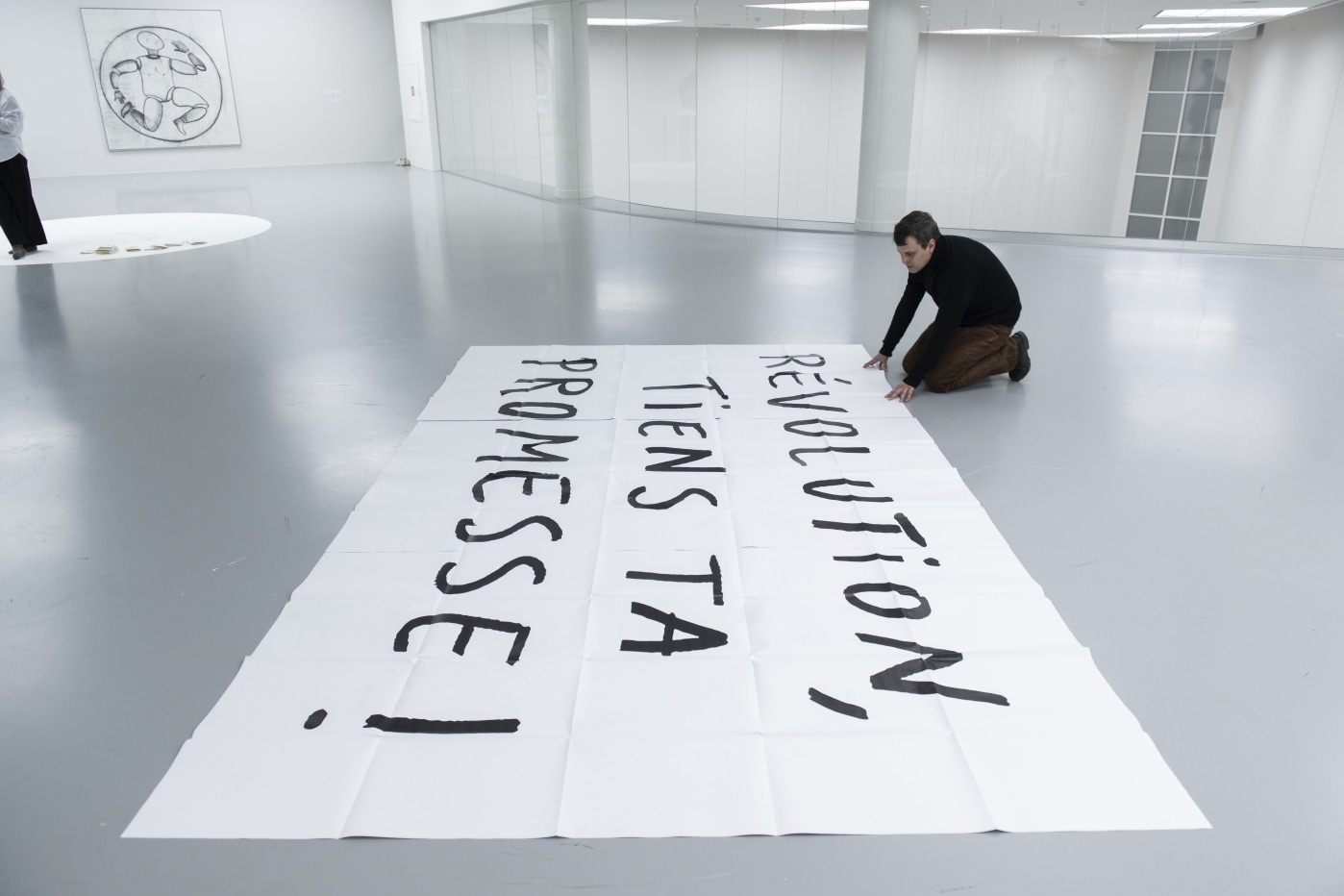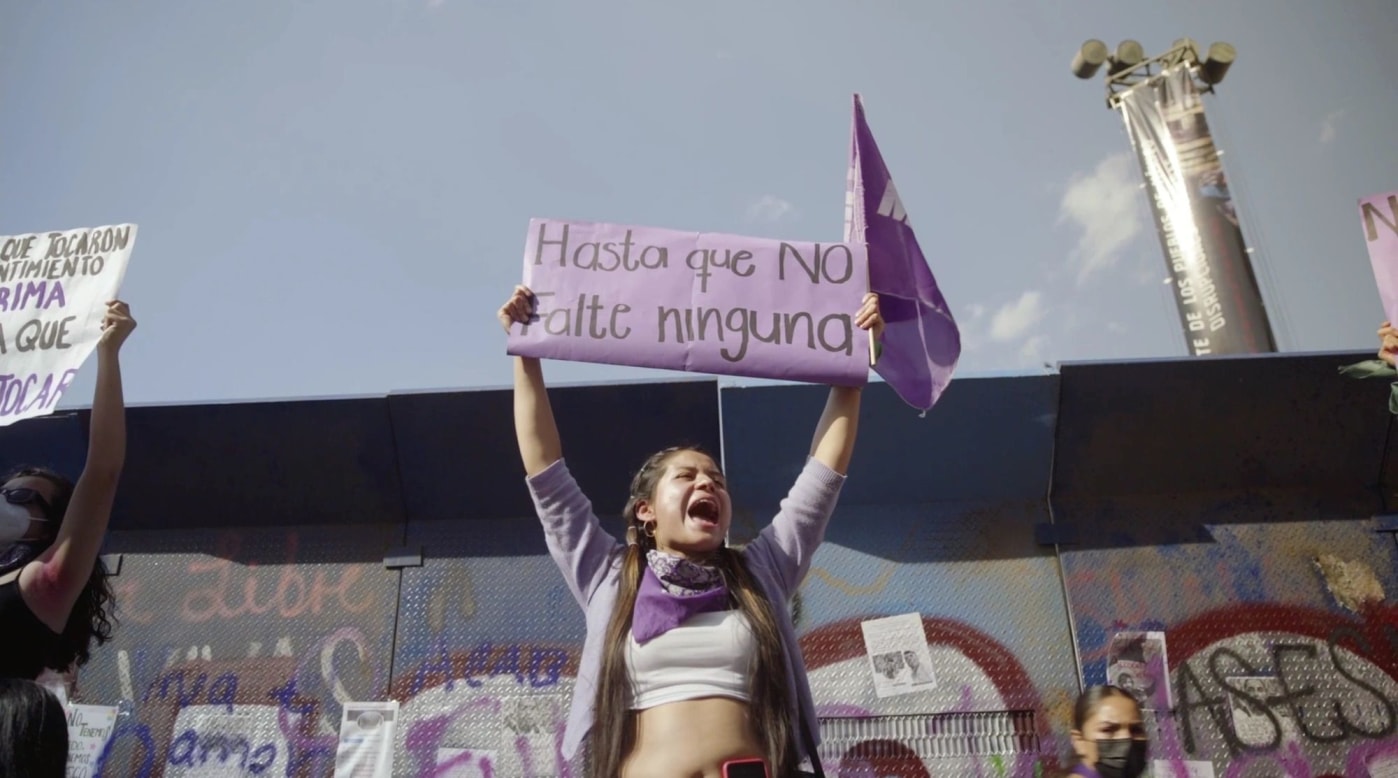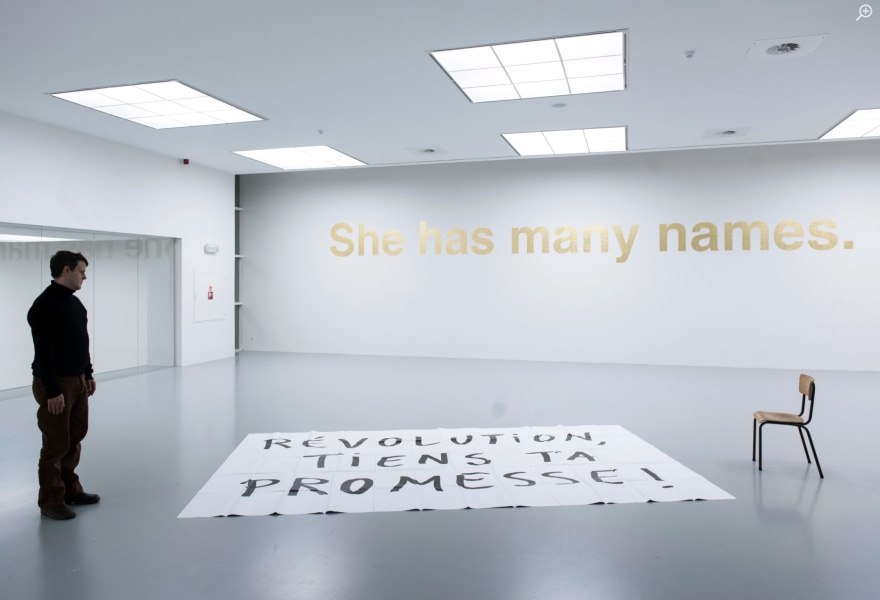20 october 2023, Pienk de Gaay Fortman
Last chance: Dora García at Ellen de Bruijne Projects
The career of Spanish artist Dora García (1965) has impressive highlights. For instance, she represented Spain at the 54th Venice Biennale (2011) and participated in Skulptur Projekte Münster (2007) and Documenta 13 (2012). Ellen de Bruijne Projects has worked with the artist since 2000. Currently, the gallery is showing the solo exhibition 'Insect, History, Mirror, Revolution' in Amsterdam. On view are her most recent works: the film Amor Rojo (2023), the installation Révolution (2023) and Insect Vocabulary (2023), a series of 3D laser cut-outs.

Dora García, Insect Vocabulary: Insect, History, Mirror, 2023, Ellen de Bruijne Projects
The latter is on show for the first time at Ellen de Bruijne Projects and consists of the words 'Insect', 'History' and 'Mirror'. These terms refer to well-known themes from García's oeuvre. Also on show is a series of drawings L'insecte 1 to 30 (Mad Marginal Charts) (2023) and a number of panels The Bug (2022-2023) that relate to Vladimir Mayakovsky's 1928-29 time travel story The Bedbug. In this wonderful play, the - accidentally - frozen young Soviet man Ivan Prisypkin has an extraordinary adventure with a parasitic insect. Fifty years later, he comes back to life in a utopian communist world where poverty, disease, romantic love and natural disasters no longer seem to exist.

Dora García, Révolution, 2023, Ellen de Bruijne Projects
In Révolution (2023), as the title suggests, García elaborates political history through a 45-minute performance. In it, a performer approaches the exhibition space to unwrap a poster. Slowly, the text "Révolution, tiens ta promesse!" (Revolution, keep your promise!) unfolds. The text is a reference to activist Margarita Robles de Mendoza (1896-1954) during a women's suffrage protest outside the Mexican Chamber of Deputies in 1934. The performer guards this slogan as if it were a matter of life and death after which the perfomer folds the poster and leaves. By staging the performance at different times and places, the artist emphasises the fragility and transience of this historically charged appeal.

Dora García, Amor Rojo, 2023, Ellen de Bruijne Projects
Margarita Robles de Mendoza is not the only female protagonist in García's art. In Amor Rojo (2023), Alexandra Kollontai (1872-1952), Soviet revolutionary and radical feminist, takes centre stage. Kollontai was the first female minister in the Bolshevik cabinet and the first female ambassador. She fought for women's emancipation in labour, education, welfare and advocated sexual emancipation, abortion rights and civil partnerships. Risking her life, the - by now exiled - politician fled to Norway, Mexico and Sweden where she held various diplomatic roles. García takes this fiercely combative woman as a starting point in her experimental film on European and Latin American history.
Dora García lives and works in Oslo and has been showing her work on various international venues for three decades. She studied at the University of Salamanca in Barcelona and the Rijksakademie in Amsterdam in the 1990s. She developed her own visual language by experimenting with film, print media, performance, theatre and digital art. García's practice is at the intersection of visual arts, performing arts, theatre and literature. She represented Spain at the Venice Biennale in 2011. She also participated in the 56th Venice Biennale in 2015, showed her work at Documenta 13 in 2012 and other international events such as Skulptur Projekte Münster in 2007, the Sydney Biennale 2008 and the São Paulo Biennale 2010. In the first half of 2023, M HKA Antwerp devoted a major solo exhibition to her work.
